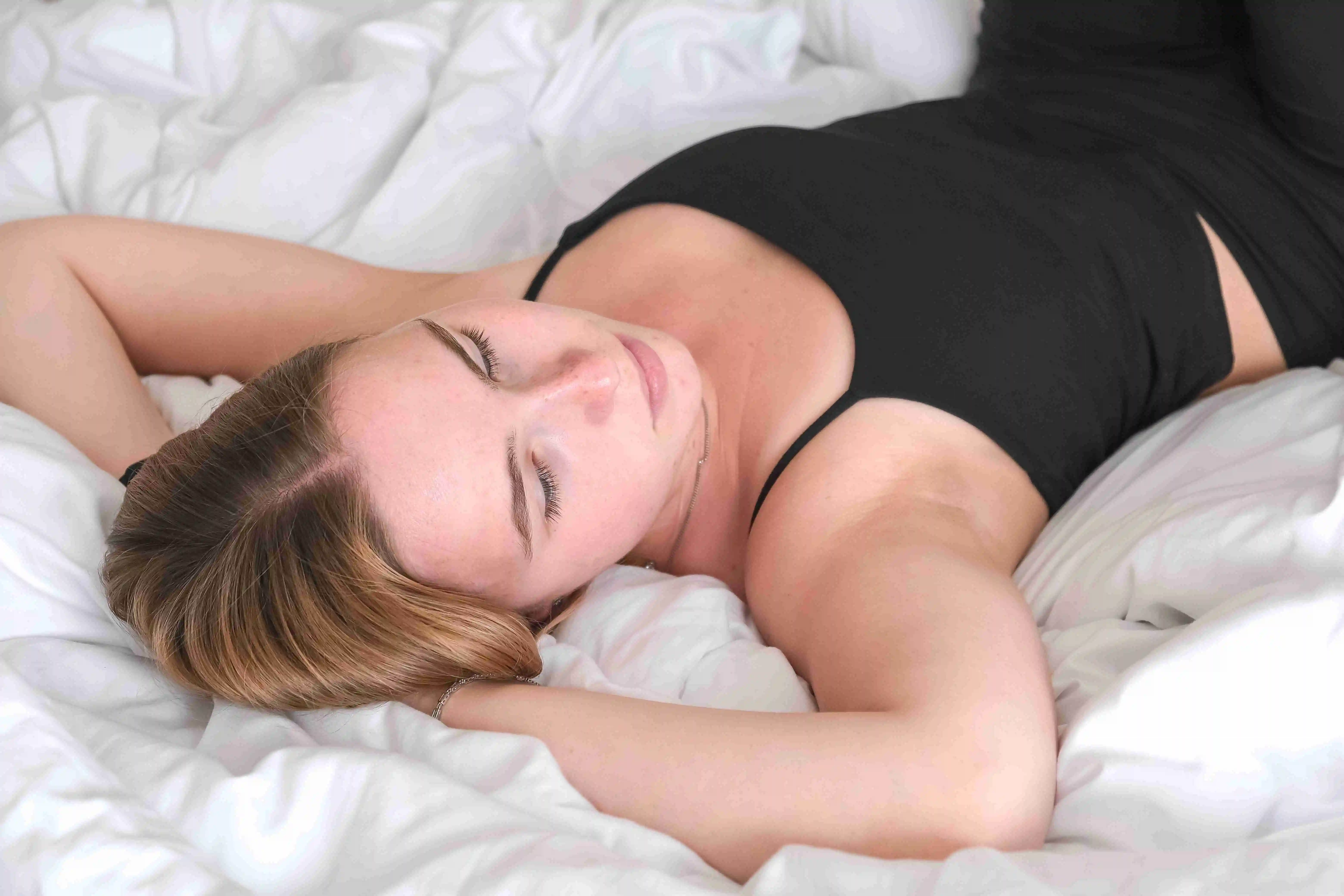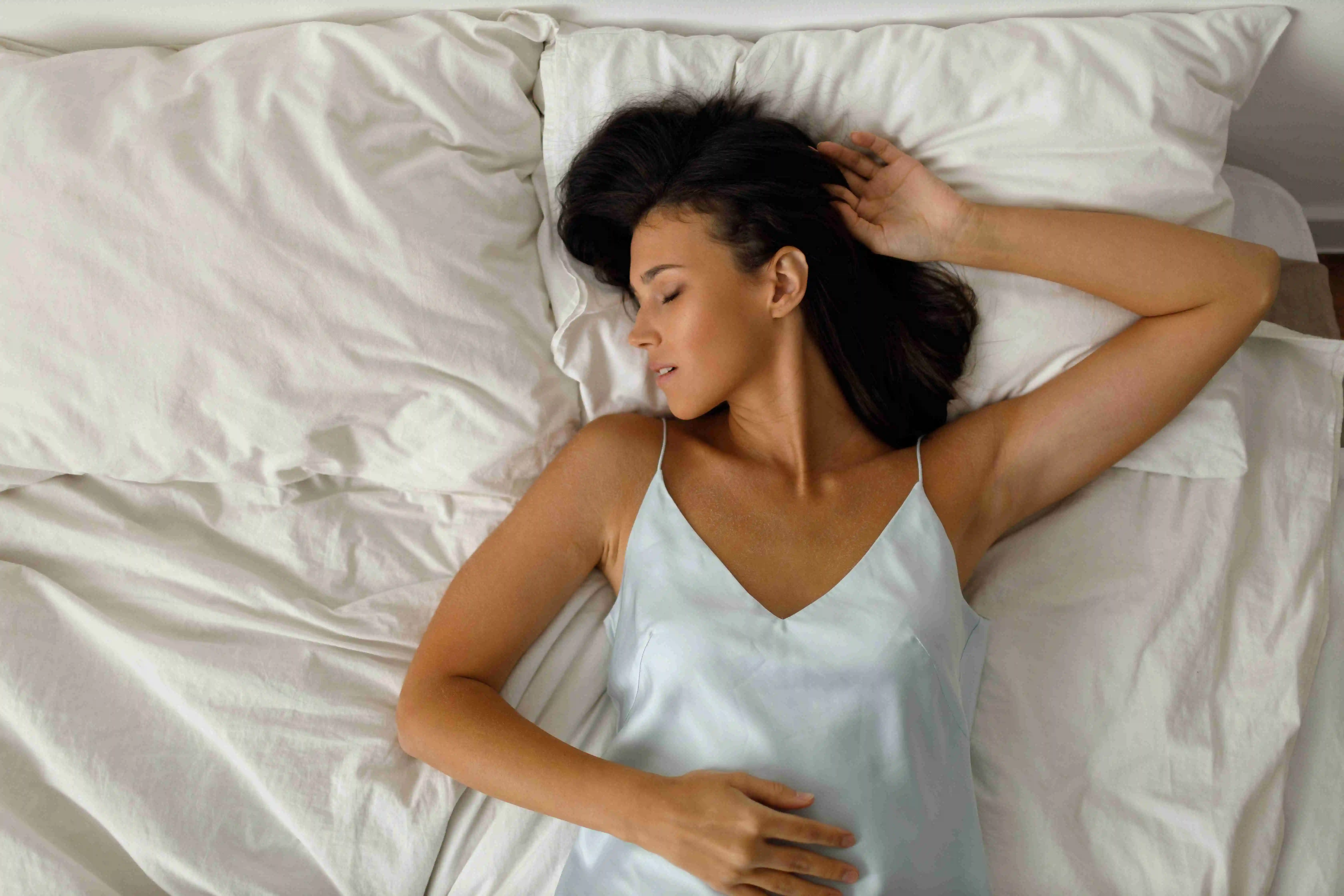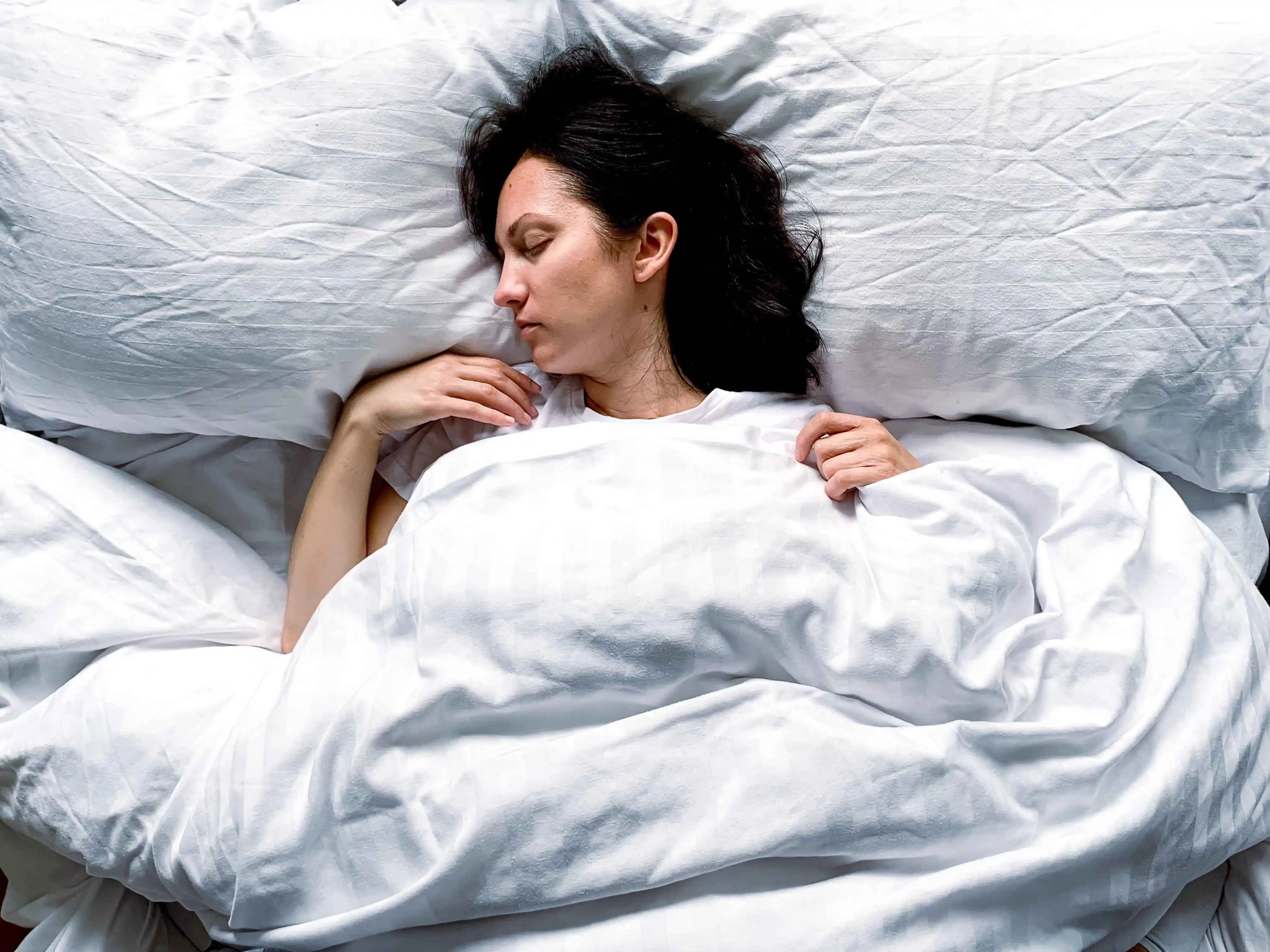
Back sleeping is considered to be the optimal position because of its numerous benefits. That’s why people who sleep in other sleeping positions try to train themselves to sleep on their back. For these people, it’s important to explore the various advantages of back sleeping to improve their sleep quality and overall well-being.
What is back sleeping?
Back sleeping, also known as supine sleeping, is often recommended by healthcare professionals as it allows for proper alignment of the spine, provides knee support, and can help prevent or reduce back and neck pain, as it is considered the best back pain sleeping posture.
Benefits of sleeping on your back
Spinal Alignment
One of the main advantages of back sleeping is that it promotes proper alignment of the spine. When lying on the back, the body's weight is evenly distributed, reducing the risk of developing back or neck pain, unlike stomach sleeping, for example, which is considered the worst sleeping position for lower back pain.
Reduced Pressure
When you lie on your back, your body weight is evenly distributed across the surface of the mattress, reducing pressure points and minimizing discomfort. This is particularly beneficial for individuals who suffer from conditions such as arthritis or joint pain.
Reduced Wrinkles
Back sleeping can help minimize the occurrence of wrinkles and skin breakouts, as there is less contact between the face and the pillow compared to other sleeping positions.
Reduced Tension Headaches
Muscle tension and poor posture are two factors that can exacerbate tension headaches. By lying on your back, you can keep your head and neck in a neutral position, allowing your muscles to relax and reducing the likelihood of tension headaches.
Improved Breathing
Another advantage of back sleeping is improved breathing, because when you sleep on your back, your airways are less likely to become obstructed, leading to better airflow.
Drawbacks of Back Sleeping
May Increase Snoring
Sleeping on the back can cause the tongue and soft tissues in the throat to collapse and block the airway, leading to snoring and interrupted breathing during sleep. This can result in poor sleep quality and daytime fatigue.
Sleep Apnea
Another disadvantage of back sleeping is the potential for developing sleep-related breathing disorders, such as obstructive sleep apnea, which is a condition characterized by repeated pauses in breathing during sleep that can lead to a variety of health issues, including high blood pressure and heart disease.
Lower Back Pain
Depending on the sleeper’s weight and the quality of the mattress, sleeping on the back can put excessive strain on the lower back, and this is because the natural curve of the spine is not properly supported in this position.
Who should sleep on their backs?

People with Lumbar Spinal Pain
People who suffer from any sort of back pain, especially in the lumbar region, will find back sleeping to be very comfortable, as it alleviates the pressure from this area and distributes the body weight across the mattress.
People with Neck Pain
If you suffer from stiff neck or neck pain, then opting for back sleeping is a great solution, as back sleeping promotes and maintains the neutral alignment of your spine with your neck, which prevents any irritation or pain in the neck, and this will help you get a better-sleeping experience.
People with Nasal Congestion
People with nasal congestion should consider sleeping on their backs. Nasal congestion can make breathing difficult, especially when lying on the stomach or side. Sleeping on the back allows for better airflow through the nasal passages, reducing congestion and promoting easier breathing.
Tips for Optimal Back Sleeping
Choose the Right Mattress
One of the most important factors to consider when back sleeping is the type of mattress you are using. A mattress that is too firm can put pressure on your back, while a mattress that is too soft may not provide adequate support.
Invest in a medium-firm mattress that contours to the shape of your body while still providing support.
Support Your Knees
Placing a pillow or cushion under your knees helps to relieve pressure on your lower back and promotes proper spinal alignment. This simple adjustment can make a big difference in how well-rested you feel in the morning and can prevent any strain or discomfort in your back.
Maintain Good Posture
Maintaining good posture while sleeping on your back is essential for optimal spinal alignment and overall health. You might not get all the benefits of back sleeping if you’re sleeping with poor posture.
Consider Adjustable Pillows
To further optimize your back sleeping position, consider using an adjustable pillow that supports the natural curve of your neck. The pillow should be firm enough to keep your head aligned with your spine, but also adjustable so that you can find the perfect height and angle for your individual needs.
When to consider changing your sleeping position if you’re a back sleeper?

Pregnancy
To alleviate the risk of poor circulation, dizziness, and shortness of breath, it is recommended that pregnant women avoid sleeping on their backs and instead opt for sleeping on their sides, preferably on the left side, as this position helps to improve blood flow to both the mother and the baby.
Obstructive sleep apnea (OSA)
Obstructive sleep apnea is a sleep disorder that causes repeated interruptions in breathing during sleep, often due to the collapse of the airway, and back sleeping can exacerbate this condition as it increases the likelihood of airway obstruction.
Chronic Snoring
Snoring occurs when the flow of air through the mouth and nose is partially blocked during sleep, and back sleeping can make snoring worse by allowing the tongue and soft tissues in the throat to collapse more easily.
Heartburn
Heartburn is a common condition that occurs when stomach acid flows back up into the esophagus, causing a burning sensation in the chest and throat. Sleeping on your back can increase heartburn symptoms as it allows the acid to more easily travel up the esophagus.
Finding the Right Sleep Position
Consider Your Needs
It is important to consider your needs when determining the best sleep position for you, as understanding your specific needs can help you narrow down the options and find a sleep position that alleviates any discomfort or issues you may be facing.
Evaluate Your Body Type
Evaluating your body type is also important in finding the right sleep position. Each body type has unique characteristics that may influence which sleep position is most comfortable. For instance, if you are pregnant, sleeping on your left side is often recommended, as it improves circulation and provides optimal support for both the mother and baby.
Experiment with Different Positions
Finding the right sleep position is crucial for a satisfying night's rest. It can help alleviate discomfort and promote better sleep quality. We recommend experimenting with different positions to find the ideal sleep position.
Trying out different positions allows individuals to determine which one provides the most comfort and support for their body and then make sleep transitions accordingly.
To know more about the difference between sleeping positions, check out the article “Side vs Back vs Stomach Sleeping”.
Invest in a Supportive Mattress
A supportive mattress helps maintain proper spinal alignment, which can alleviate discomfort and promote better sleep. Look for a mattress that provides adequate support for your body, especially in the areas where you need it most, such as your lower back.
For a comprehensive guide to how to pick the best mattress for you, check the article “Mattress Buying Guide”.
Use Pillows for Support
Pillows can be used to support various parts of your body, such as your head, neck, and legs, depending on your preferred sleep position. For example, if you sleep on your back, placing a pillow under your knees can help relieve pressure on your lower back and promote spinal alignment.
FAQs
How long does it take to train yourself to sleep on your back?
Training yourself to sleep on your back can take varying amounts of time, depending on the individual. Some people may be able to make the switch relatively quickly, while others may need more time to adjust. It is important to note that changing your sleeping position can be challenging, as your body is accustomed to a certain position.
Is back sleeping the best sleeping position?
Back sleeping is often considered the best sleeping position for several reasons. Firstly, sleeping on your back allows for proper alignment of the spine, which can help alleviate any existing back or neck pain, as it also provides neck alignment and makes it the best sleeping position for lower back pain. Additionally, sleeping on your back can minimize the risk of developing wrinkles and acne, as there is no direct contact between the face and the pillow. Back sleeping also promotes better breathing and reduces the likelihood of snoring or developing sleep apnea.
Why is back sleeping uncomfortable for some?
For some individuals, back sleeping can be uncomfortable and may lead to difficulty falling asleep, and a common reason for that is that these individuals might not be accustomed to this sleeping position, maybe because their spine is not properly supported or because the tongue and soft tissues in the throat can block the airway more easily in this position.
is it better to sleep on your back?
Back sleeping is one of the best sleep habits, and it's often considered to be better than side sleeping for the several benefits it provides; however, it is important to note that side sleeping can be beneficial for certain conditions, such as acid reflux or pregnancy. Ultimately, the best sleep posture is one that is comfortable, conducive to a good night's rest, and provides optimal sleep comfort.
Conclusion
Back sleeping is considered by many to be the optimal sleeping position, and it’s one of the most popular sleeping positions, and that’s due to its many sleep benefits.
However, as beneficial as back sleeping is, some individuals might find it not suitable for their sleeping preferences, so it’s important to be aware of some of the drawbacks associated with back sleeping to enhance your sleeping experience and overall well-being.
Karen Barnard
Karen is a Human Movement Science expert and a certified sports nutrition and massage therapist. At Sleepiverse, she combines her passion for human movement science and sleep health to educate herself and her readers about healthier sleep. In addition to writing articles, Karen manages a fitness studio offering private training, athletic conditioning, and sports massage therapy. She focuses on providing people with a holistic environment for people to reach their health goals, often incorporating stretch therapy to promote mental tranquillity and help people improve their sleep.


